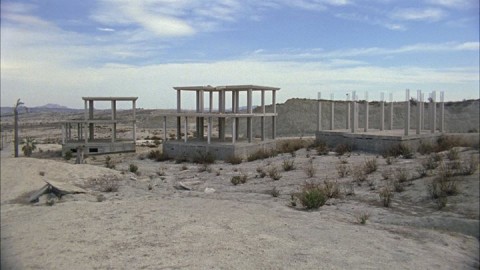Guest blogger Sophie Gonick reviews Speculation Nation (Brown/Gruffat, 2014) and the panel discussion that took place after a screening of the film at UnionDocs on November 1. Gonick joined the Center for European and Mediterranean Studies at NYU in Fall 2015 as a Faculty Fellow/Assistant Professor. She holds a Ph.D. and a Master in City Planning (M.C.P.) from the Department of City & Regional Planning from the University of California, Berkeley, and an A.B. from Harvard University. Her recent research examines mortgage lending and financialization, immigrant activism, and contemporary urban mobilizations in Spain. She has also written about squatting and urban informality in Madrid, most recently for the article ‘Interrogating Madrid’s Slum of Shame: Urban Expansion, Race, and Placed-Based Activism in the Cañada Real Galiana,’ in Antipode: A Journal of Radical Geography.
Since the onset of the Spanish economic crisis in 2008, hundreds of thousands of households have lost their homes. Yet throughout the peninsula, new infrastructure—much of it housing—lies fallow, quickly turning to ruins. This landscape of stark contrasts, of abundance and material lack, decadence and decay, inhabits the heart of Bill Brown and Sabine Gruffat’s new documentary, Speculation Nation. The filmmakers set out for Spain hoping to explore the spaces of contemporary crisis, ‘a place you can visit.’ Indeed, this is a crisis one can point to clearly in the specter of an empty airport far out on the La Mancha plains, or in the ghostly remains of a half-finished golf resort in the southern desert. Yet as Luis Moreno-Caballud reminded us during the panel discussion following the film, ‘this is not a crisis; it is a scam.’ Moreno-Caballud, an activist and researcher, was quick to point out the deeply political nature of Spain’s recent transformation. This transformation, laden with contrasts, hints at that scam, which has left a trail of devastation and dispossession in its wake.
Where Gruffat and Brown’s film really shines is in illuminating the deeply gendered nature of contemporary Spanish crisis and its contestations. Delving into the activists worlds of the Plataforma de Afectados por la Hipoteca (The PAH-Mortgage Affected People’s Platform), they find struggles in which women are central protagonists, leading the way in an effort to save their homes. As a researcher who spent over a year working with the PAH Madrid, I can attest to the profoundly feminist nature of their activism. Spaces of contestation, collaboration, and cooperation often espouse a robust feminism that infiltrates many forms of activist praxis. The daily reproduction of the movement, as is made amply clear, relies on women committed to preventing evictions.
The film does not really probe the nature of this feminist ethos, but its relevance is substantial. Throughout their activist trajectories, the afectadas who make up the PAH illuminate the ways in which crisis—as an urban experience, as a fraudulent hoax perpetuated through differentiated economic practices, as a political opportunity for the imposition of austerity—operates through logics of gender and difference. Cowed by the crush of economic defeat, male heads of household often slunk into the night; the deeply violent experience of foreclosure provokes a kind of financial castration. Women, then, are left to shoulder the burden of saving the household, providing for the family, and fighting for community. That struggle, moreover, occurs in a moment in which the welfare state has been left in tatters.
Under Gruffat and Brown’s gaze, that struggle for community is a cause of celebration. The filmmakers explore a variety of emergent living situations, from the squatting of empty buildings in Seville’s suburbs to the occupation of empty caves along the steep terraces overlooking medieval Granada. These alternatives, eked out during a moment of uncertainty and precarity, emerge as utopian experiments that confront how we inhabit our built environment, particularly one marked indelibly by these abundant contrasts. New forms of collaboration and mutuality emerge to lessen the burden of social reproduction under duress. Joy and spontaneity erupt unannounced, demonstrating resilience, opportunity, and new articulations of the ‘good life.’ However, as Elia Gran, a journalist, Spanish activist and, like Moreno-Caballud, a member of Marea Granate, mentioned in her response to the film, many afectadas are not squatters by political persuasion. Their turn to squatting is borne out of necessity. Another activist who has left Spain for greater opportunity elsewhere, Gran reminds us of the trauma and loss that lurk behind such utopian promise.
One of the most powerful images in the film occurs early on, in a communal squat near Seville. The camera now turned upon them within the space of their new home, several young women busy themselves tidying the house. In voiceover, the filmmakers note their subjects perform the rituals of good citizenship, demonstrating a kind of aptitude for homeownership. That moment speaks to the intense linkages between citizenship, housing, and consumption. Further, it demonstrates those linkages have not truly been unmade, even in light of flourishing alternatives.

